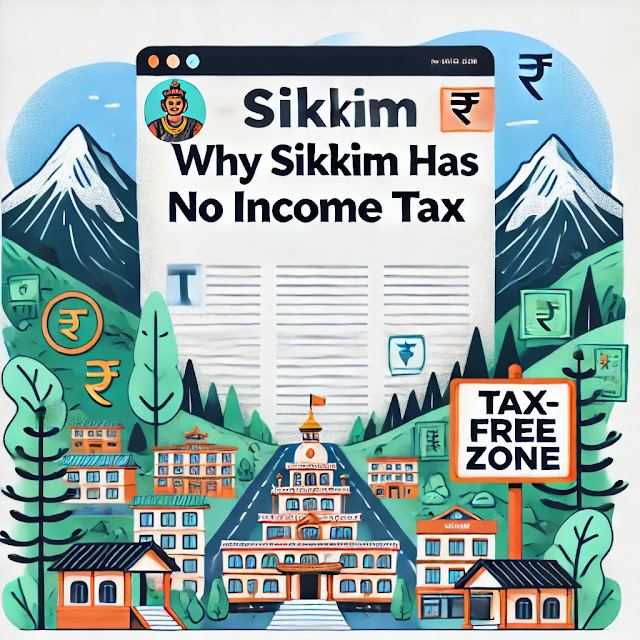There is no country that is entirely "tax-free," but some nations have zero income tax or offer very low tax rates to attract businesses and expatriates. These countries usually generate revenue through other means, such as tourism, natural resources, or financial services. Below is a list of countries with no personal income tax and the reasons behind their tax-free status.
Countries with No Personal Income Tax
1. United Arab Emirates (UAE)
- Why Tax-Free?
- The UAE earns substantial revenue from oil exports and tourism.
- Free zones attract businesses with tax exemptions.
- VAT (Value-Added Tax) was introduced in 2018, but personal income remains untaxed.
2. Saudi Arabia
- Why Tax-Free?
- The country is one of the world's largest oil exporters.
- Government revenue primarily comes from oil sales and corporate taxes on foreign businesses.
- No personal income tax, but there is VAT and other indirect taxes.
3. Qatar
- Why Tax-Free?
- Massive natural gas reserves generate substantial government revenue.
- Corporate tax exists for foreign businesses, but individuals do not pay income tax.
- VAT is in place, contributing to non-oil revenue.
4. Bahrain
- Why Tax-Free?
- Revenue comes from oil, gas, and financial services.
- It has a well-developed banking and investment sector.
- Introduced VAT but still has no personal income tax.
5. Kuwait
- Why Tax-Free?
- Major oil exports provide the bulk of national income.
- The government provides free education, healthcare, and fuel subsidies.
- No personal income tax, though corporate tax applies to foreign firms.
6. Oman
- Why Tax-Free?
- Oil and gas revenue supports government expenses.
- Limited taxation, but VAT and corporate taxes exist.
- No personal income tax on individuals.
7. Cayman Islands
- Why Tax-Free?
- A major offshore financial hub with strong banking and investment services.
- Revenue comes from business registration fees, tourism, and import duties.
- No income tax, capital gains tax, or corporate tax.
8. Bermuda
- Why Tax-Free?
- A financial and insurance hub attracting global corporations.
- Revenue from customs duties, payroll tax, and tourism.
- No personal income tax, but employers pay a payroll tax.
9. Monaco
- Why Tax-Free?
- The government generates income from tourism, casinos, and VAT.
- No personal income tax for residents.
- Wealthy individuals and businesses contribute through indirect taxes.
10. Bahamas
- Why Tax-Free?
- Revenue from tourism, offshore banking, and VAT.
- No personal income tax, capital gains tax, or inheritance tax.
- The government relies on customs duties and real estate fees.
11. Brunei
- Why Tax-Free?
- Wealth from oil and gas ensures a strong economy.
- No income tax, as the government provides extensive subsidies and welfare programs.
- Corporate taxes exist but are not applied to individuals.
12. Vanuatu
- Why Tax-Free?
- A small island economy focused on offshore banking, tourism, and agriculture.
- No income tax, capital gains tax, or wealth tax.
- The government earns revenue through indirect taxation and financial services.
13. Saint Kitts and Nevis
- Why Tax-Free?
- Revenue from its Citizenship by Investment (CBI) program.
- Tourism and offshore financial services contribute to the economy.
- No personal income tax, but VAT applies.
14. Turks and Caicos Islands
- Why Tax-Free?
- Revenue from tourism, offshore financial services, and import duties.
- No personal income tax, capital gains tax, or corporate tax.
15. Anguilla
- Why Tax-Free?
- The government relies on financial services, tourism, and import duties.
- No personal income tax, corporate tax, or capital gains tax.
How Do Tax-Free Countries Generate Revenue?
Since these countries do not rely on personal income tax, they raise funds through alternative methods:
-
Oil & Gas Exports
- Gulf countries like Saudi Arabia, UAE, and Qatar use oil revenue to fund public services.
-
Tourism Industry
- Countries like the Bahamas, Monaco, and Maldives earn substantial revenue from tourists.
-
Financial Services & Offshore Banking
- Tax havens like the Cayman Islands, Bermuda, and Vanuatu attract global businesses.
-
Indirect Taxes (VAT, Sales Tax, Customs Duties)
- Many of these countries impose VAT and customs duties to generate income.
-
Real Estate & Business Registration Fees
- Countries like Saint Kitts and Nevis offer Citizenship by Investment (CBI) programs.
-
Corporate Taxes on Foreign Companies
- While individuals are not taxed, foreign corporations often face business taxes.
Advantages of Living in a Tax-Free Country
- Higher take-home income.
- Attractive for high-net-worth individuals and expatriates.
- Business-friendly environments with minimal taxation.
- Often come with luxury lifestyles, scenic views, and strong economies.
Disadvantages of Tax-Free Countries
- Higher cost of living in places like Monaco and the UAE.
- Reliance on volatile revenue sources (e.g., oil prices affect Gulf economies).
- Limited public services in smaller tax-free nations.
- Many tax-free countries impose indirect taxes (VAT, customs duties, etc.).
Conclusion
While no country is completely tax-free, some nations offer no personal income tax to attract businesses, investors, and expatriates. These countries rely on alternative revenue sources such as oil, tourism, offshore banking, and VAT. Before moving to a tax-free country, it is essential to consider other costs, such as high living expenses, VAT, and residency requirements.
Top 15 Tax-Free Countries: Why They Have No Income Tax & How They Generate Revenue










